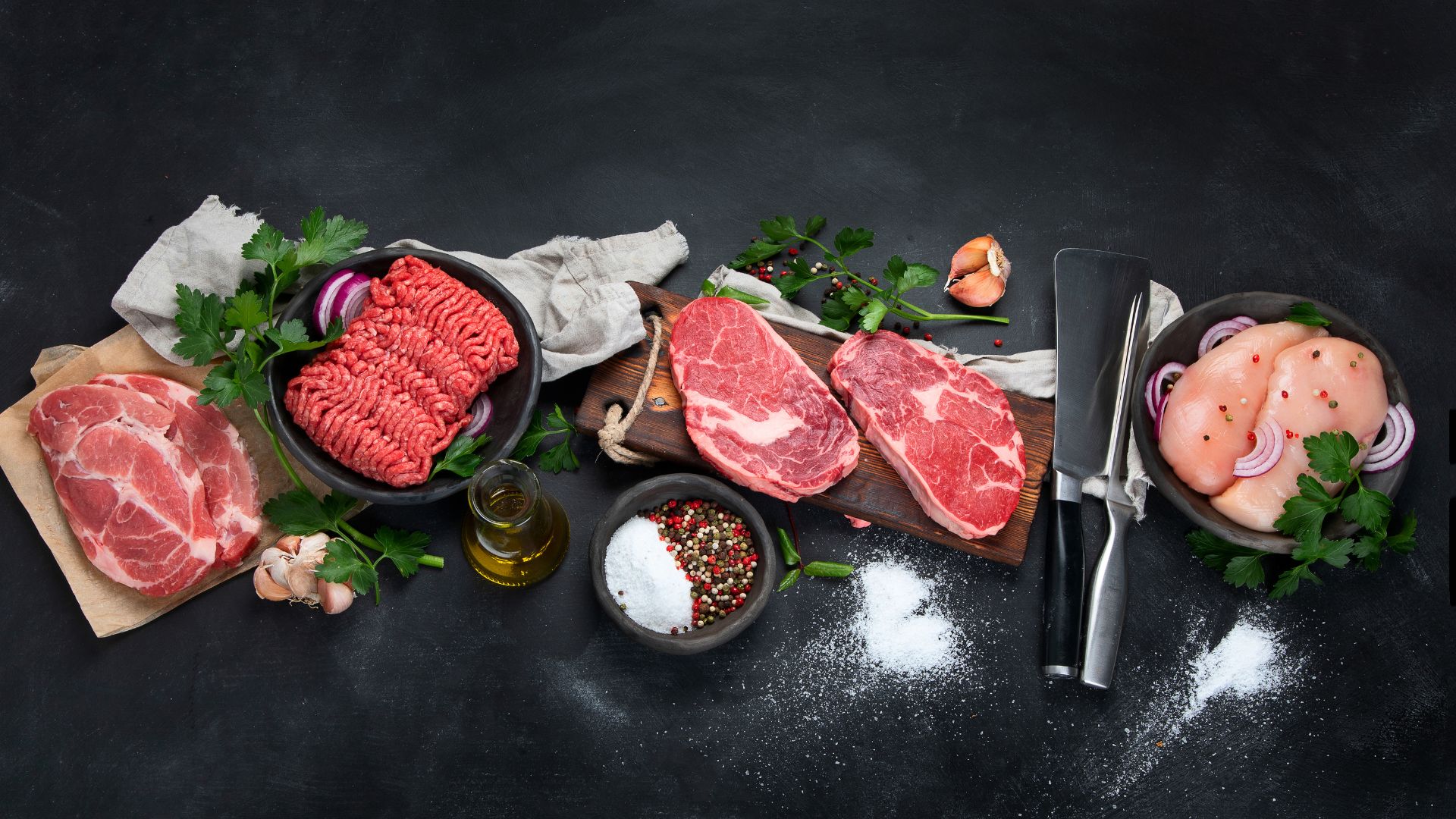Pork and beef are the richest meats in creatine, with contents of 5.0 and 4.5 grams per kilogram of raw meat respectively. Although these meats are excellent natural sources of creatine for athletes, they do not, on their own, enable the maximum levels of muscle stock saturation required to specifically optimize sporting performance to be achieved.
Contents
What is creatine and why is it important?
Origin of creatine
Creatine is a natural compound that our body produces endogenously, i.e. by itself, at a rate of 1 gram per day. It is synthesized mainly in the liver and kidneys from three amino acids (glycine, arginine, methionine).
This molecule is 95% stored in our muscles in the form of phosphocreatine. The remainder is found mainly in the brain and heart.
Role in muscle performance
Creatine is fundamental to rapid energy production in our muscles. It acts as an immediately available energy reservoir for short, intense physical efforts, helping to regenerateATP (Adenosine TriPhosphate), our main source of energy.
Our natural creatine reserves enable us to maintain high energy levels during the first 8-10 seconds of effort. That's why many athletes seek to extend this duration by increasing their creatine intake, whether through diet or supplementation with food supplements.
Which meats are richest in creatine?
Now that we have a better understanding of creatine's role, let's take a look at its content in different food sources of animal origin:
Creatine content of feed (g/kg)
These values are given for raw meats.
Cooking affects the creatine content of foods. High-temperature cooking methods, such as frying, grilling or barbecuing, can result in a significant loss of creatine, estimated at between 30 and 50%.
It is therefore recommended to use gentle cooking techniques, such as poaching, steaming or steaming, to limit creatine degradation.
To saturate physiological creatine reserves, you would need to consume approximately 3 to 5 grams of creatine per day, i.e. :
- Approx. 1 kg raw beef
- About 500g of herring
- About 1 kg of chicken or fish (up to 10g of creatine in fish)
Not to mention the environmental issues that such consumption entails, it's easy to see how such inputs would be complicated.
Natural creatine in food calculator
Because of these very high quantities, many athletes turn to supplementation with creatine monohydrate, a pure, well-studied form of creatine. This alternative enables precise, effective doses to be obtained, without having to overload the diet with animal meats.
Good to know: there are other foods containing creatine, such as milk, but their creatine content is very low! Creatine is also found in eggs, at 0.1g per egg (in the yolk).
Why supplement with creatine?
Faced with the limits of dietary intake, creatine supplementation is an interesting solution for athletes seeking to optimize their performance.
Scientific studies show that a daily dose of 3 to 5 grams of creatine monohydrate-type dietary supplements saturates the body's stores and improves muscle strength and power during high-intensity exercise.
The benefits of creatine monohydrate are numerous, and unlike dietary intake, which is substantial and varies with cooking, creatine monohydrate powder is 100% vegan and offers precise dosage and optimal absorption, with no animal product contamination.
For your health, choose Creapure® creatine monohydrate, whose purity and quality are guaranteed by strict quality controls. Protéalpes creatine carries this world-renowned label as a guarantee of very high quality creatine.
To find out more, see our other reports on creatine.
- Find out if creatine influences the quality of your erections and what the scientific studies really say on the subject.
- What does science have to say about collagen + creatine?
- Monohydrate, Kre-Alkalyn, phosphokinase : explore the differences between these forms of creatine to optimize your choice according to your sporting goals.
- Discover how to naturally boost your body's creatine production with simple methods accessible to all.
- Is taking creatine before bed a good or bad idea? Take a look at the pros and cons of taking creatine before bed.
- Still confusing creatine with creatinine? Discover the difference between creatine and creatinine to better understand your blood tests.
- Wondering which drinks to take creatine with for optimum absorption? Here are the best options (and those to avoid).
- Are creatine and caffeine compatible? We take a look at this controversial combination.
- Some people worry about joint pain: here's what we know today about the link between creatine and tendonitis.
- Finally, if you're looking to boost your sessions, find out how to use creatine in pre-workout and what this means in terms of real effectiveness.














